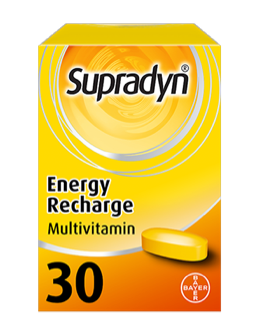RECHARGE MAGAZINE
How to improve your kid’s concentration
Many children struggle with focus and concentration. Mostly it is because they are children, they have lots of energy, they get curious about everything around them and they get distracted easily. It is also difficult for them to stay focused for longer periods of time. Staying concentrated is boring, especially when they can think of million other things to do. So it is not unusual if your child struggles with the lack of concentration and it doesn’t mean the child has a problem. But if you are worried that it happens a lot, you might wonder what the reasons are and how you can help.
It is challenging to stay focused. Kids might try hard to concentrate, but they just don’t manage to do it. It doesn’t mean that they are not intelligent or that they are not hardworking. It also doesn’t mean that they are not interested in something.
What are the possible reasons behind the lack of concentration in kids?
No matter the reason, there are ways how you can help your child with staying focused and concentrated. Every child is different, hence they require individual approach. They have habits that might need to be changed. Also they need the environment in which they can thrive. The best solution is to watch your child first, make some notes regarding their behaviour and then set up a routine which you will both follow daily.
When you want your child to stay concentrated you should first remove all gadgets that can distract them. This includes switching off TV, radio, removing iPads, tablets and phones from their reach. Make sure that they have all their study materials nearby, so they don’t have to get up and get it. If they are younger, you can prepare their study table in the kitchen where you can watch and help them. If they are older, they can study in their bedroom.
Eating healthy food has been linked to how well children carry out cognitive tasks and there are different foods which can contribute to it.1,2 For example, fatty fish like salmon, tuna, mackerel contain a lot of omega-3 acids that can sharpen their mind and help maintain normal brain function and normal vision.3 Supradyn Kids contains vitamins that can support the healthy growth of the child and the development of their brain.
It is important that your child knows what happens and when so they can program their brain for the times when it can relax and for the times when it needs to focus. For example when the child comes back from school they can have a healthy snack followed by some play time and then they will do their homework.
It might be overwhelming for your child if they see how much they have to do. So instead of asking them to do the whole lot at one go, divide it into more manageable tasks. For example instead of reading the whole chapter, your child can read page by page and have short breaks in-between. After finishing each page they will feel a sense of accomplishment which in turn can motivate them to study more. Children can only focus for about 15-20 minutes and after that their level of concentration drops. During their break times they should be allowed to do something completely different, for example a physical activity. Mixing a physical activity with a mental activity can be very effective and can help the child focus on a next task.
Each child is different so finding out what way of learning is the best for them might help increase their focus and concentration. Some children learn through their vision, some through sounds, others by practical knowledge and by touch. It is important to understand which category your child falls under. If you want your child to better understand and process information, choose the method that suits them best. Therefore, the acquired knowledge should stay with them for long term rather than short term.
Children learn a lot through a play so it can be a good idea to introduce some games to jog their brains. There are some games that require thinking, planning and the use of memory like crossword puzzles or jigsaw puzzles.
It is not the end of the world if your child is always fidgety and struggles with staying focused for longer periods of time. Don’t despair because they are only children in the end, full of energy and curiosity. There are some ways, however, that you can help them with staying focused. You can do it by understanding their needs, setting the right environment and providing enough vitamins and minerals through a balanced, nutritious diet and supplements like Supradyn Kids. Parents want to see their children grow happy and healthy. Supradyn Kids is the best solution because it supports both the nervous system and the immune system. Your kids will love Supradyn Kids for its delicious fruity taste and funny figures.
1Kim, J. Y., & Kang, S. W. (2017). Relationships between Dietary Intake and Cognitive Function in Healthy Korean Children and Adolescents. Journal of Lifestyle Medicine, 7(1), 10–17. doi: 10.15280/jlm.2017.7.1.10
2 Haapala, E. A., Eloranta, A.-M., Venäläinen, T., Schwab, U., Lindi, V., & Lakka, T. A. (2015). Associations of diet quality with cognition in children – the Physical Activity and Nutrition in Children Study. British Journal of Nutrition, 114(7), 1080–1087. doi: 10.1017/s0007114515001634
3 Weiser, M., Butt, C., & Mohajeri, M. (2016). Docosahexaenoic Acid and Cognition throughout the Lifespan. Nutrients, 8(2), 99. doi: 10.3390/nu8020099
















